The media furore over the Renewable Heat Incentive (RHI) has long passed, but the fallout from the debacle remains a sore point for many scheme participants.
Tyrone poultry producer Sean Kerr said there are “myths” about RHI which are still engrained in how the public thinks about the scheme.
“We got slated on the radio, on TV and in the daily papers. The media hyped it up and the public were made think that anyone with a biomass boiler was a gangster,” he said.
With plans now being put in place to shut down RHI completely, Sean said “the record needs to be set straight” about how scheme participants have been treated.
His poultry unit in Carrickmore was established in 2005. There are four broiler houses on the site and for the first 10 years of production the sheds were heated with gas brooders.
He was a relatively early convert to biomass heating when four 99kW boilers became operational and were accredited under the RHI scheme in March 2015.
The new system was based around indirect heat, so fuel was no longer burnt inside the poultry sheds. Instead, wood pellets heat water in a boiler house and the water is piped into sheds to rise the air temperature.
“It improved the environment in the sheds overnight. It was far better and healthier for the birds and for anyone working in the sheds,” Sean said.
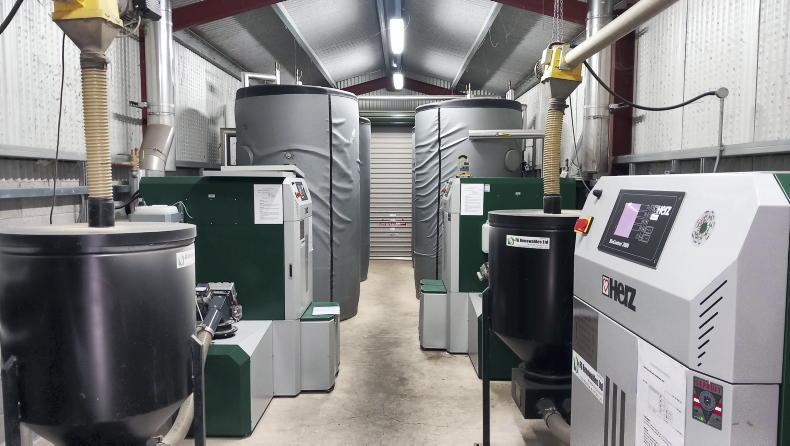
Sean Kerr has four 99kW biomass boilers on his poultry unit in Carrickmore.
Overspend
RHI is well known for initially having inflated payments, where tariffs under the scheme were higher than the cost of running the boilers.
When a projected overspend from the scheme emerged, RHI tariffs were changed in 2017. A system of tiered and capped payments was introduced first, and then further cuts were applied in 2019.
One of the most difficult points in the RHI saga for Sean was in May 2017, when the names of all RHI participants and how much they received under the scheme, was made public.
“People were looking at you thinking you had done something wrong just because you were in the scheme. We found that really tough.
“The tariffs were definitely too high at the start. It was wrong, but we didn’t set the tariffs. It was not our fault,” Sean said.
He maintains that even though it was over seven years ago, a lot of the commentary about RHI at that time has stayed with the public.
“It was a myth that we were overheating sheds to get higher RHI payments. You can’t heat a broiler shed a fraction of degree more than is required.
“You also can’t open the windows to let warm air out because birds do not like air movement. The idea that we were running boilers flat out when sheds were empty is nonsense too.
“The tariffs were cut twice and my heat usage never changed. I have all the records to prove it. So how did I abuse the scheme?” Sean said.
He said some people think RHI was something that the unionist community mainly availed of, probably because the DUP’s Arlene Foster was the minister responsible for the scheme at the start.
“In nationalist areas, there were plenty of people who signed up. Farmers, businesses, community groups and sports clubs,” Sean said.
Arguably, the most common misconception could be that RHI left a huge overspend in public finances, when in reality the opposite is true.
Around £33m comes from the UK Treasury each year to fund RHI in NI, but only £5m of this is used at present, which means there is an underspend of around £28m every year.

There was a high uptake of RHI among poultry producers in NI. \ Philip Doyle.
RHI boilers running at a financial loss
The tariff rates that were introduced under the second set of cuts in 2019 are still in place for RHI participants.
For Sean Kerr, the most that his four biomass boilers can bring in under RHI each year is around £8,000.
Last year, he spent £84,000 on wood pellets, plus servicing and maintenance costs for the four boilers came to £6,800.
Officials in the Department for the Economy (DfE) have proposed increasing RHI tariffs from 1 November 2024 and suggest it will be worth an extra £5,000 to a typical scheme participant.
Like so many calculations to do with RHI, the figures are disputed. Boilers owners suggest the actual uplift will be much less given the financial year is over halfway through.
Despite the proposed tariff rise, DfE is still working on plans to shut down RHI to all existing participants earlier than the initial 20-year agreement.
When that happens, Sean is clear that his biomass boilers will be switched off.
The plan is to use LPG gas to heat his broiler houses through an indirect hot water system.
“The government has set climate targets. There is a scheme that is helping to reduce emissions and yet they want to close it down. It is crazy,” he said.

There is an underspend of around £28m every year for RHI in NI.
‘RHI was like the Post Office scandal’
Sean Kerr said the high RHI payments that he received for almost two years before tariffs were cut did not allow him to avoid financial difficulties.
He said the RHI payments under the first tariff did not cover the cost of installing the four biomass boilers, plus there was ongoing costs with fuel, repairs and interest on bank loans.
The Carrickmore man suggests there are similarities between RHI and the Post Office scandal where postmasters were wrongly prosecuted for stealing and false accounting.
“None of the RHI participants had to do jail time, but we were looked down on by our local communities for doing something that wasn’t our fault. It was civil servants and politicians who designed and launched the scheme. How many of them have lost as much as a day’s pay because of what happened?” Sean said.
He said the cuts that were applied to RHI tariffs put hundreds of people across NI under “severe pressure” both mentally and financially.
Sean also said that politicians were effectively unwilling to hear from RHI participants about how the handling of the scheme affected them.
“I tried to get in contact with local representatives many times, but it always came to no avail. They just want the whole thing to go away.
“The RHI tariffs were hit with a sledgehammer twice. We were the fall guys. They should just base the tariffs off the scheme in Britain. It’s not rocket science,” he said.
The plan is close down RHI early and start up a new scheme to promote renewable heating. Is that something Sean would consider joining?
“Never,” he quickly replies. “Why would I borrow a single pound for another government scheme ever again?”
The media furore over the Renewable Heat Incentive (RHI) has long passed, but the fallout from the debacle remains a sore point for many scheme participants.
Tyrone poultry producer Sean Kerr said there are “myths” about RHI which are still engrained in how the public thinks about the scheme.
“We got slated on the radio, on TV and in the daily papers. The media hyped it up and the public were made think that anyone with a biomass boiler was a gangster,” he said.
With plans now being put in place to shut down RHI completely, Sean said “the record needs to be set straight” about how scheme participants have been treated.
His poultry unit in Carrickmore was established in 2005. There are four broiler houses on the site and for the first 10 years of production the sheds were heated with gas brooders.
He was a relatively early convert to biomass heating when four 99kW boilers became operational and were accredited under the RHI scheme in March 2015.
The new system was based around indirect heat, so fuel was no longer burnt inside the poultry sheds. Instead, wood pellets heat water in a boiler house and the water is piped into sheds to rise the air temperature.
“It improved the environment in the sheds overnight. It was far better and healthier for the birds and for anyone working in the sheds,” Sean said.

Sean Kerr has four 99kW biomass boilers on his poultry unit in Carrickmore.
Overspend
RHI is well known for initially having inflated payments, where tariffs under the scheme were higher than the cost of running the boilers.
When a projected overspend from the scheme emerged, RHI tariffs were changed in 2017. A system of tiered and capped payments was introduced first, and then further cuts were applied in 2019.
One of the most difficult points in the RHI saga for Sean was in May 2017, when the names of all RHI participants and how much they received under the scheme, was made public.
“People were looking at you thinking you had done something wrong just because you were in the scheme. We found that really tough.
“The tariffs were definitely too high at the start. It was wrong, but we didn’t set the tariffs. It was not our fault,” Sean said.
He maintains that even though it was over seven years ago, a lot of the commentary about RHI at that time has stayed with the public.
“It was a myth that we were overheating sheds to get higher RHI payments. You can’t heat a broiler shed a fraction of degree more than is required.
“You also can’t open the windows to let warm air out because birds do not like air movement. The idea that we were running boilers flat out when sheds were empty is nonsense too.
“The tariffs were cut twice and my heat usage never changed. I have all the records to prove it. So how did I abuse the scheme?” Sean said.
He said some people think RHI was something that the unionist community mainly availed of, probably because the DUP’s Arlene Foster was the minister responsible for the scheme at the start.
“In nationalist areas, there were plenty of people who signed up. Farmers, businesses, community groups and sports clubs,” Sean said.
Arguably, the most common misconception could be that RHI left a huge overspend in public finances, when in reality the opposite is true.
Around £33m comes from the UK Treasury each year to fund RHI in NI, but only £5m of this is used at present, which means there is an underspend of around £28m every year.

There was a high uptake of RHI among poultry producers in NI. \ Philip Doyle.
RHI boilers running at a financial loss
The tariff rates that were introduced under the second set of cuts in 2019 are still in place for RHI participants.
For Sean Kerr, the most that his four biomass boilers can bring in under RHI each year is around £8,000.
Last year, he spent £84,000 on wood pellets, plus servicing and maintenance costs for the four boilers came to £6,800.
Officials in the Department for the Economy (DfE) have proposed increasing RHI tariffs from 1 November 2024 and suggest it will be worth an extra £5,000 to a typical scheme participant.
Like so many calculations to do with RHI, the figures are disputed. Boilers owners suggest the actual uplift will be much less given the financial year is over halfway through.
Despite the proposed tariff rise, DfE is still working on plans to shut down RHI to all existing participants earlier than the initial 20-year agreement.
When that happens, Sean is clear that his biomass boilers will be switched off.
The plan is to use LPG gas to heat his broiler houses through an indirect hot water system.
“The government has set climate targets. There is a scheme that is helping to reduce emissions and yet they want to close it down. It is crazy,” he said.

There is an underspend of around £28m every year for RHI in NI.
‘RHI was like the Post Office scandal’
Sean Kerr said the high RHI payments that he received for almost two years before tariffs were cut did not allow him to avoid financial difficulties.
He said the RHI payments under the first tariff did not cover the cost of installing the four biomass boilers, plus there was ongoing costs with fuel, repairs and interest on bank loans.
The Carrickmore man suggests there are similarities between RHI and the Post Office scandal where postmasters were wrongly prosecuted for stealing and false accounting.
“None of the RHI participants had to do jail time, but we were looked down on by our local communities for doing something that wasn’t our fault. It was civil servants and politicians who designed and launched the scheme. How many of them have lost as much as a day’s pay because of what happened?” Sean said.
He said the cuts that were applied to RHI tariffs put hundreds of people across NI under “severe pressure” both mentally and financially.
Sean also said that politicians were effectively unwilling to hear from RHI participants about how the handling of the scheme affected them.
“I tried to get in contact with local representatives many times, but it always came to no avail. They just want the whole thing to go away.
“The RHI tariffs were hit with a sledgehammer twice. We were the fall guys. They should just base the tariffs off the scheme in Britain. It’s not rocket science,” he said.
The plan is close down RHI early and start up a new scheme to promote renewable heating. Is that something Sean would consider joining?
“Never,” he quickly replies. “Why would I borrow a single pound for another government scheme ever again?”








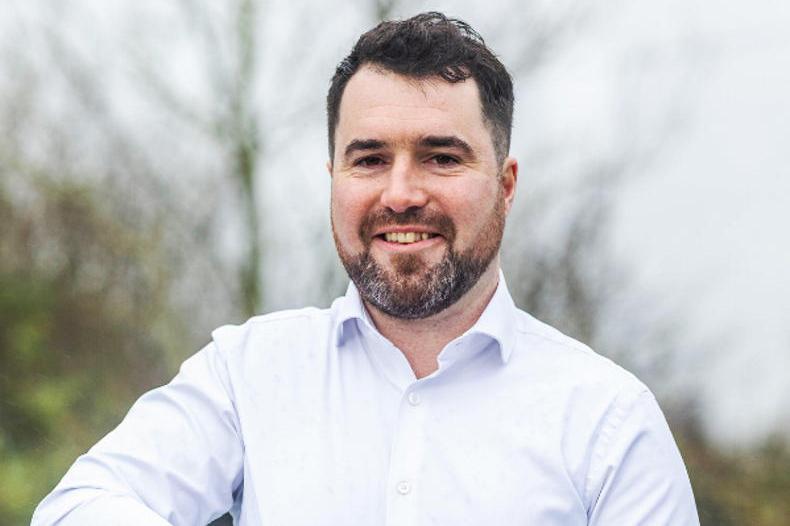
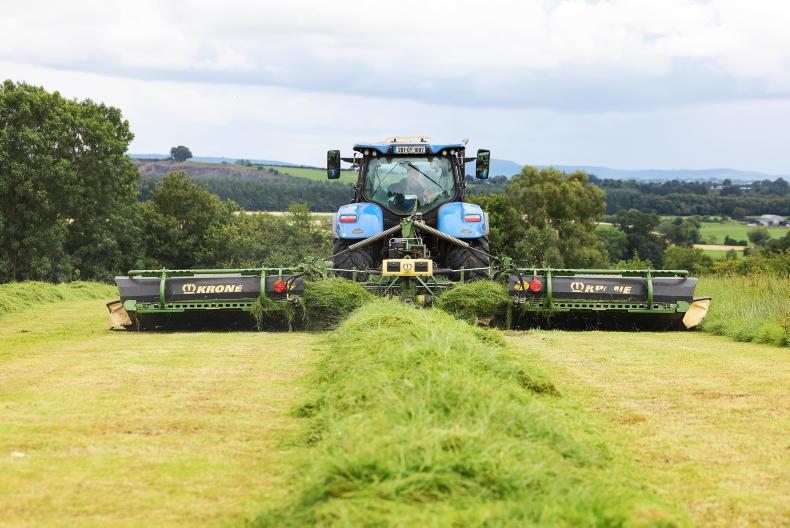
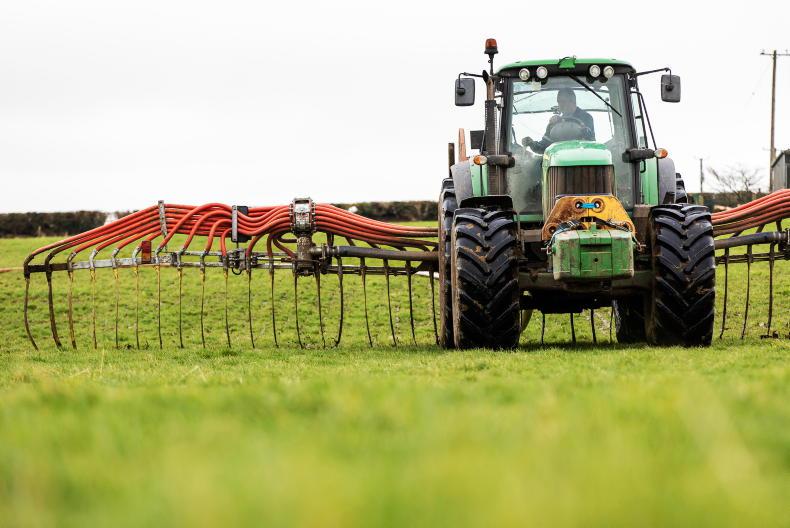
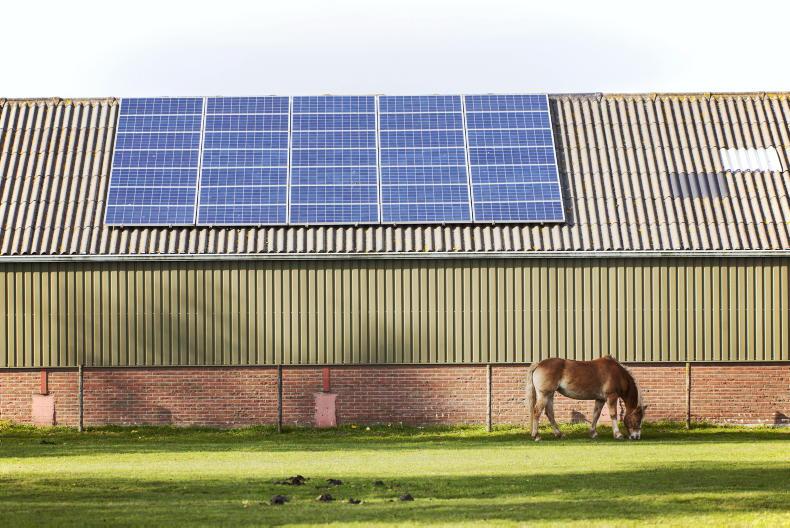
SHARING OPTIONS